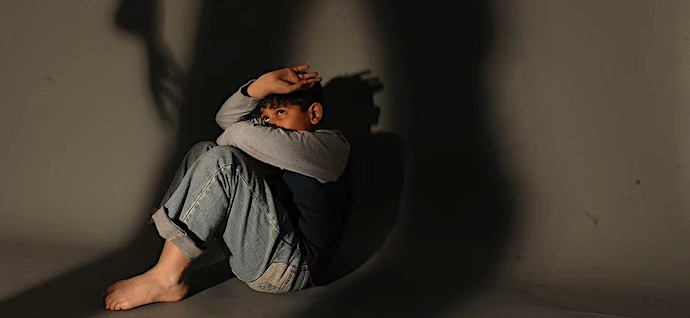Photo courtesy of India Today
When a child speaks up about sexual abuse, the world often reacts to the story only at its most tragic endpoint – when it’s too late. But what I need the public to understand is this: the true horror is not just what happens before a child speaks. It’s everything that happens after.
Before a child can speak to the world, they must first feel safe enough to speak to those closest to them, usually their parents, caregivers or teachers. But even that is a mountain to climb.
To tell anyone what has happened, a child needs language. They need the words to describe what was done to them. And they need to feel safe enough to say those words out loud. But most children who have been sexually abused are traumatised, confused and deeply ashamed. These emotions block language.
I know this from personal experience.
When I was 14, I tried to tell my mother what had happened to me. She asked me to explain, to describe it clearly. I knew the words. I had the vocabulary. But I couldn’t say them. One word – just one – sat in my throat like a blade: penis. I couldn’t say it, not because I didn’t understand, but because it symbolised everything that had violated me. Saying it would mean reliving it. And I wasn’t ready.
Because I couldn’t say the word, my mother didn’t believe me.
This happens to children all the time.
In girls’ schools, I’ve found that some principals and teachers do try to stand by their students. But in boys’ schools, the silence is almost universal.
Boys aren’t taught that they can be abused. When it happens to them, they are told to shrug it off. “That’s part of becoming a man,” they are told. No one explains that what’s happened to them is wrong. Most boys don’t even have the words to describe itbecause no one ever gave them permission to speak.
That’s the first hurdle: breaking the silence in a world that teaches children to stay quiet.
Once a complaint is made, things get worse. The child now enters a system that is not designed to protect them. It’s designed to protect the state.
Sexual abuse is legally classified as a crime against the state. That means investigations are carried out by police officers and by the National Child Protection Authority (NCPA), both of which are arms of the state. Their job is not to protect the child. Their job is to gather evidence to build a case.
And in this process the child is treated like a tool, not a person.
Most children are made to recount their experience again and again, in interviews that are essentially interrogations. Many times, they are questioned without a supportive adult, guardian, or lawyer present. These interviews are often cold, clinical, and intimidating. They are not designed with the child’s trauma in mind.
I have personally witnessed this.
I have been there when children were made to repeat their stories multiple times to different officers. I’ve seen their hands shake. I’ve seen their eyes go blank. I’ve seen their spirits break.
They are asked questions that challenge their memory, their credibility, their very sense of reality. They are told, “But you said this earlier so why are you saying that now?” or “If you can’t say this part clearly, how do we know the rest happened?”
This is not justice. This is emotional violence.
Children do not just suffer the abuse once. They suffer again each time they are made to retell the story. Again each time they are disbelieved. Again each time the system pokes holes in their truth.
If they’re lucky, their case moves forward. But the damage is done.
If they’re not lucky, their case is dismissed. Their truth is buried. And their trust in adults, in protection, in justice is shattered.
And then we wonder why children don’t speak.
When I was 33, I finally had the emotional strength to speak publicly about what had happened to me. But by then, the statute of limitations had passed. There was no legal recourse left for me. I couldn’t report it. I couldn’t fight back, not in the way the law allows.
But I can speak now. And I must.
If we truly want to stop sexual abuse, we cannot just tell children to “speak up.” We need to make the process after disclosure safe. We need to ensure:
That a child is supported emotionally from the moment they disclose.
That interviews are trauma-informed, not interrogative.
That legal protections are designed around the child, not just the case.
That a guardian or independent advocate is present at every step.
That we train officers, principals and caregivers not just to listen but to understand.
Because right now, the way we handle reports of abuse is breaking children.
And no child deserves to be broken for telling the truth.
